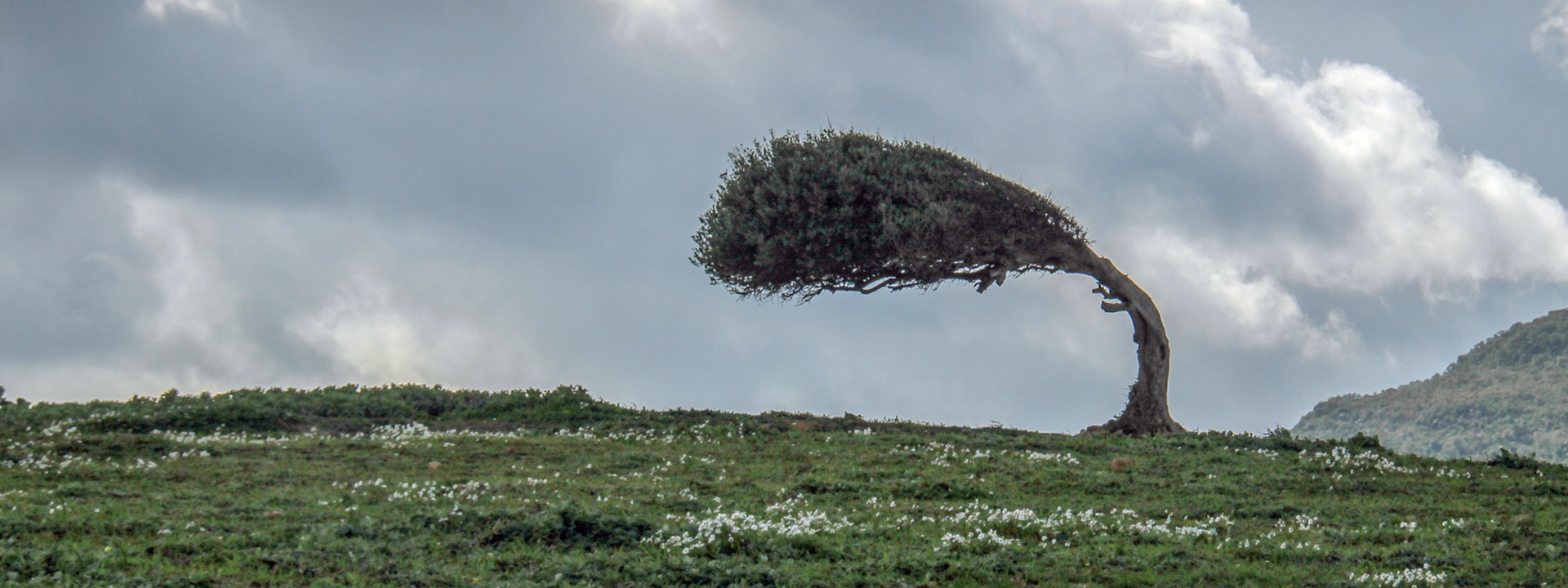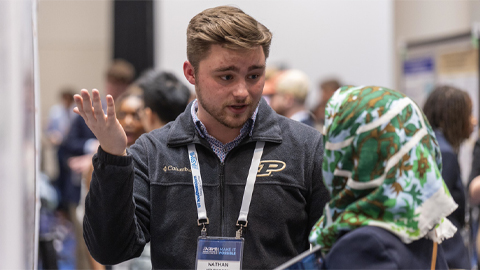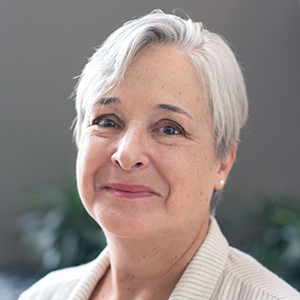
Thank you for surprising me
My job is many things. As I edited articles about trauma and recovery for our January issue, it occurred to me that sometimes it’s like a walk along a familiar trail.
I live near the Rock Creek Trail, which follows its namesake creek for about 18 miles from Washington, D.C., out to a manmade lake in suburban Maryland. It’s not exactly a wilderness, but it’s pleasantly woodsy. In the summer, it’s shady and cool, and as I write this it’s a riot of autumn color and crunchy leaves. By the time you read this, the trees will be bare.
I walk the local section of the trail often, especially early in the morning. And I have to confess that, when I walk, I usually focus on what’s in my own head. The scenery is a backdrop to my thoughts. But, every once in a while, I’ll spot something — a beautiful patch of tiny spring flowers, a tree newly fallen into the stream, a deer frozen in midstep — that brings me out of myself. And those moments of surprise and wonder make being on the trail worthwhile.
I’ve been doing this job for several years now, and parts of it are pretty predictable. But, every once in a while, I am surprised.
Back in September, I told a story here about getting mugged before my wedding — a trauma that stayed with me for a long time — and I invited you to write about a trauma in your life. We live in a world filled with violence and pain, both physical and emotional, but I think many of us are reluctant to talk about it. My parents encouraged me to be cheerful and grateful — nobody likes a complainer. Maybe you got that from your parents too?
But, I’ve learned that there’s healing power in sharing stories of pain and loss. Communities gather in grief, and this society is a community. So, I asked for stories. Honestly, I didn’t know what to expect.
You caught me out like a deer on the trail.
The essays here are brave and sad and beautiful. They are written by people who have survived trauma, who continue to live with trauma, who help others through trauma and who have unwittingly worsened another person’s trauma.
I just want to say thank you to the writers who share their stories here. I hope you, our readers, will pause to read and think, and then join me in honoring their gift to us.
Trauma & Recovery
Mental-illness-after-a-Ph-D
“It just doesn’t feel like the two aspects of myself can coexist.”
By Reid Blanchett
I am a homicide survivor
“I called my mom for more details … then I called my PI … she was quiet and listened as I screamed and cried.”
By Katie Sandlin
I survived sudden cardiac death and 37 days in a coma
“The neurologist on my team said there were ‘no purposeful signs of activity’ … and weaned my phenobarbital dose down. I woke up the next morning.”
By Cass Condray
Regurgitation to resilience: A family’s hard-won miracle
“From the moment of her birth, there was something amiss with our daughter, Zehra.”
By Fatahiya Kashif
Capsized: Excerpts from a short memoir of a life upturned
A story about grief, loss and heartbreak turns into one about strength, forgiveness and love.
By Avo Kato
Coming home twice
Blaise Arena writes about the collective trauma caused by the war in Vietnam, the individual trauma experienced by those who served, and coming to terms with having contributed to a friend’s suffering.
By Blaise J. Arena
Work–life balance is preventative care
“Long story short, work-related stressors caused me to grind my teeth at night …. It dawned on me that what started as an invisible mental imbalance, left untreated, had turned into physical complications.”
By Frances Smith
Fostering mental health in faculty and students
“The nature of science often requires failed experiments and competing deadlines, on top of the financial stressors and our personal lives.”
By Corbin J. Standley
Enjoy reading ASBMB Today?
Become a member to receive the print edition four times a year and the digital edition monthly.
Learn moreGet the latest from ASBMB Today
Enter your email address, and we’ll send you a weekly email with recent articles, interviews and more.
Latest in Opinions
Opinions highlights or most popular articles

AI can be an asset, ASBMB educators say
Pedagogy experts share how they use artificial intelligence to save time, increase accessibility and prepare students for a changing world.

Sketching, scribbling and scicomm
Graduate student Ari Paiz describes how her love of science and art blend to make her an effective science communicator.

Embrace your neurodivergence and flourish in college
This guide offers practical advice on setting yourself up for success — learn how to leverage campus resources, work with professors and embrace your strengths.

Survival tools for a neurodivergent brain in academia
Working in academia is hard, and being neurodivergent makes it harder. Here are a few tools that may help, from a Ph.D. student with ADHD.

Hidden strengths of an autistic scientist
Navigating the world of scientific research as an autistic scientist comes with unique challenges —microaggressions, communication hurdles and the constant pressure to conform to social norms, postbaccalaureate student Taylor Stolberg writes.

Black excellence in biotech: Shaping the future of an industry
This Black History Month, we highlight the impact of DEI initiatives, trailblazing scientists and industry leaders working to create a more inclusive and scientific community. Discover how you can be part of the movement.

